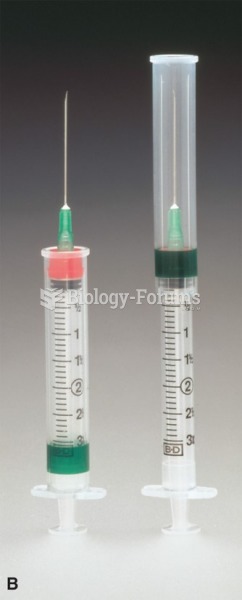|
|
|
Atropine was named after the Greek goddess Atropos, the oldest and ugliest of the three sisters known as the Fates, who controlled the destiny of men.
More than nineteen million Americans carry the factor V gene that causes blood clots, pulmonary embolism, and heart disease.
All patients with hyperparathyroidism will develop osteoporosis. The parathyroid glands maintain blood calcium within the normal range. All patients with this disease will continue to lose calcium from their bones every day, and there is no way to prevent the development of osteoporosis as a result.
In the United States, an estimated 50 million unnecessary antibiotics are prescribed for viral respiratory infections.
Human kidneys will clean about 1 million gallons of blood in an average lifetime.







